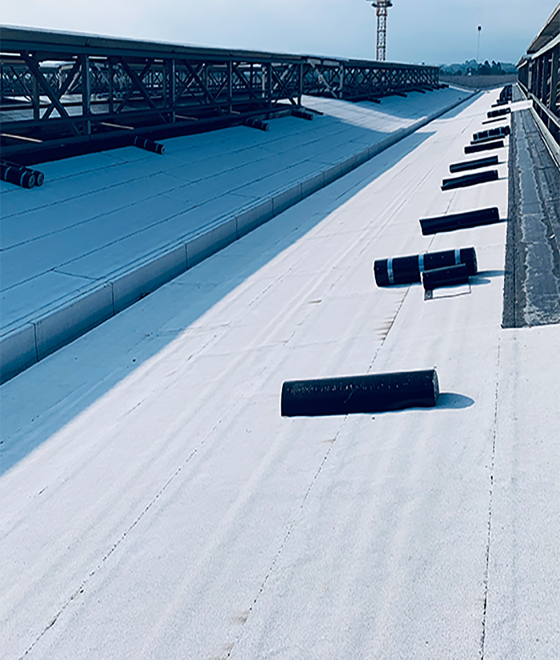
Nov . 18, 2024 18:08 Back to list
Innovative Approaches to Asphalt Composite Materials for Enhanced Durability and Performance
The Versatile World of Asphalt Composite Innovations and Applications
Asphalt composite, often referred to as asphalt concrete, has evolved significantly over the years. This composite material, primarily made from a mixture of aggregates, asphalt binder, and various additives, plays a crucial role in modern infrastructure. Its applications range from road construction to roofing materials, showcasing its versatility and durability.
Definition and Composition
Asphalt composite is a resilient material primarily used for constructing pavements and surfaces. Its main components include aggregates (such as crushed stone, gravel, and sand), asphalt binder (a viscous liquid derived from petroleum), and, depending on specific requirements, various additives and modifiers. These additives are incorporated to enhance the performance characteristics of the asphalt composite, allowing it to withstand different environmental challenges.
Types of Asphalt Composites
There are several types of asphalt composites designed for specific applications. The most common include
1. Hot Mix Asphalt (HMA) This is the most frequently used type, characterized by the heating of asphalt and aggregates before mixing. HMA provides excellent durability and load-bearing capacity, making it ideal for highways and high-traffic roadways.
2. Warm Mix Asphalt (WMA) This type is mixed at lower temperatures, reducing energy consumption and emissions during production. WMA retains the same level of performance as HMA but is more environmentally friendly.
3. Cold Mix Asphalt Less common but highly effective for patching and repairing roadways, cold mix asphalt can be applied without heating. It is often used for temporary repairs and in areas where hot mix isn’t accessible.
4. Porous Asphalt Designed to allow water to drain through the surface, porous asphalt helps minimize surface runoff and promotes environmental sustainability. It is often utilized in parking lots and low-traffic areas where water management is necessary.
Applications of Asphalt Composite
The application of asphalt composite extends beyond just pavement. Here are some notable uses
1. Roads and Highways The most significant application of asphalt composite is in the construction and maintenance of road systems. Its ability to withstand heavy traffic loads and resist weather-related damage makes it a preferred material.
asphalt composite

2. Airports Asphalt composite is also extensively used in the construction of airport runways and taxiways. The material’s strength and durability ensure it can handle the high-impact loads from aircraft.
3. Parking Lots Its versatility allows for various finishes and textures, accommodating aesthetic preferences while providing a long-lasting surface for vehicles.
4. Rooftops Modified asphalt composites are increasingly used in roofing materials, providing waterproofing solutions for flat and low-sloped roofs. They offer excellent resistance to UV rays and other environmental factors.
5. Recycling One of the most impressive aspects of asphalt composite is its recyclability. Used asphalt can be reclaimed through recycling processes and reused in new asphalt mixtures, promoting sustainability in construction practices.
Advantages of Asphalt Composite
The benefits of asphalt composite are numerous, contributing to its widespread use
- Durability and Longevity Properly designed and constructed asphalt composite can last for decades, withstanding the effects of weather, heavy traffic, and other stresses.
- Cost-Effectiveness The relative ease of production and application makes asphalt composite a cost-effective choice for road construction and maintenance.
- Quick Installation The ability to lay asphalt quickly minimizes road closure times and disruptions, enhancing productivity in construction.
- Environmental Considerations With the advent of warm mix and porous asphalt technologies, the environmental footprint of asphalt production and application has decreased, making it a more sustainable choice.
Conclusion
Asphalt composite has proven to be an invaluable material in modern infrastructure development. Its adaptability for various applications, coupled with its inherent durability, ensures that asphalt composite will continue to play a vital role in road construction, roofing, and beyond. As technology progresses, we can expect further innovations in asphalt composite materials, leading to even more efficient and environmentally responsible uses in the future. The ongoing development of this versatile composite highlights the importance of sustainable practices in the construction industry, paving the way for a modern world that values both durability and environmental stewardship.
-
Stone Coated Metal Roof Tile-Roman Tile for Durable Elegant Roofing
NewsJul.24,2025
-
Stone Coated Metal Roof Tile-Nosen Tile: Durable & Stylish Roofing
NewsJul.23,2025
-
Durable Tiles Made of Clay for Modern Cladding Solutions
NewsJul.22,2025
-
Stone Coated Roman Tile Metal Roofing - Durable & Elegant
NewsJul.22,2025
-
Premium Roofing Granules for Sale - High Durability & Cost-Saving
NewsJul.21,2025
-
Durable Laminated Shingles for Weather-Resistant Roofing
NewsJul.21,2025







